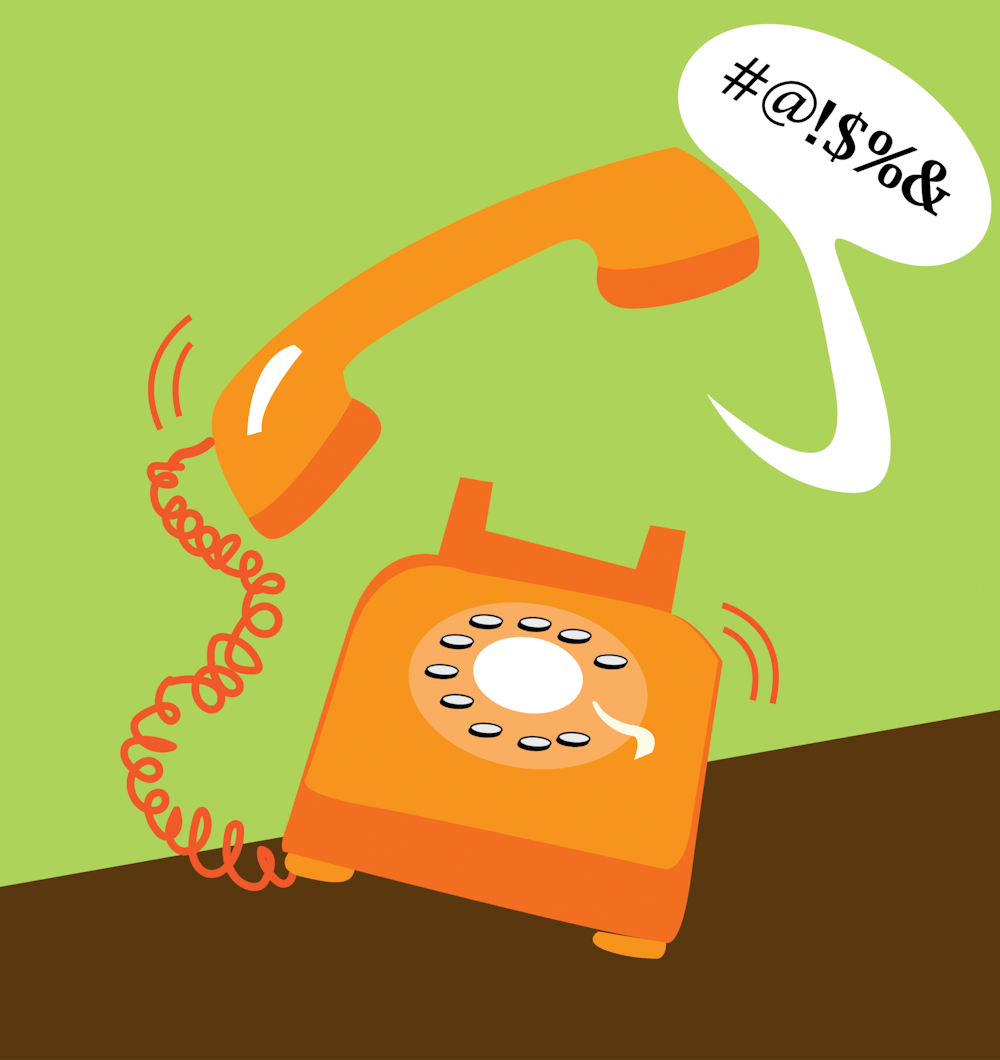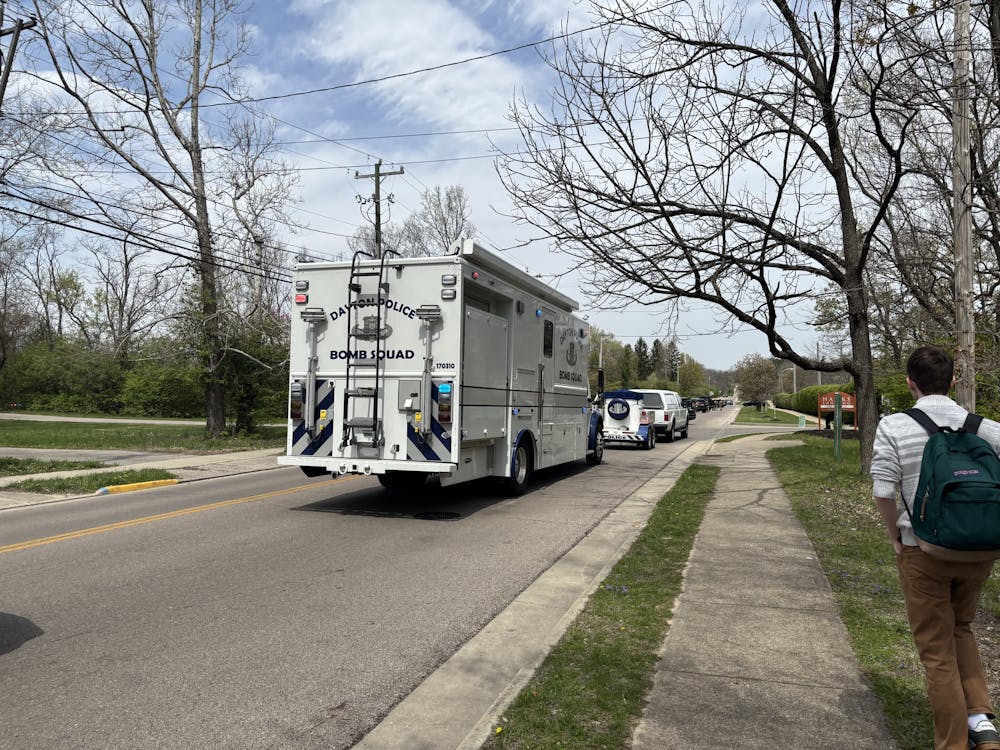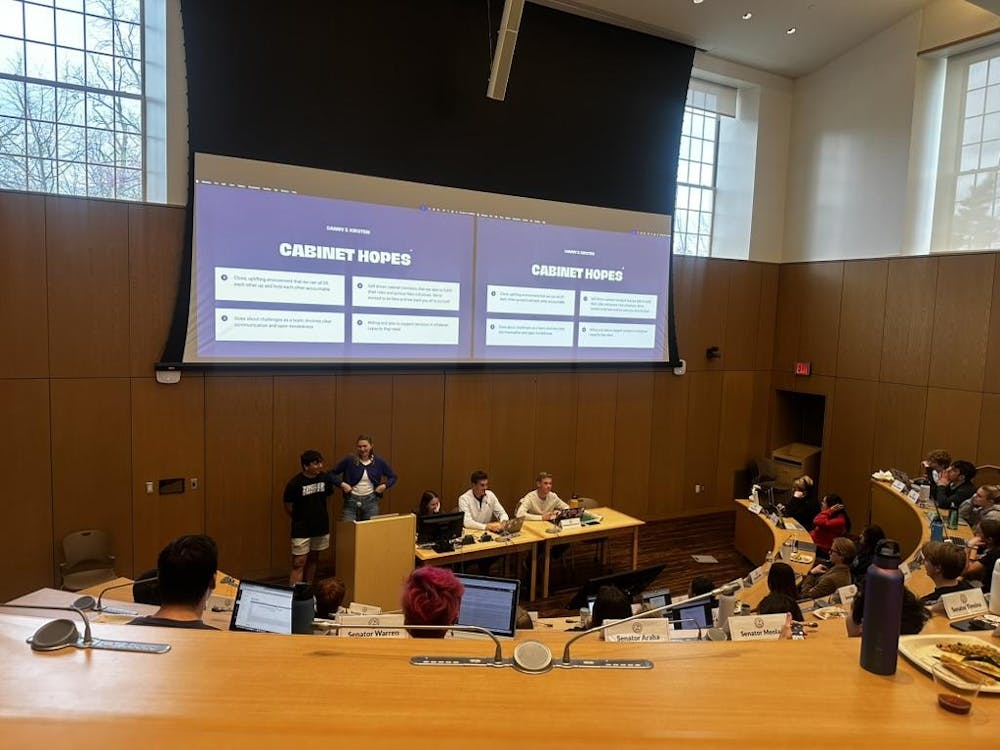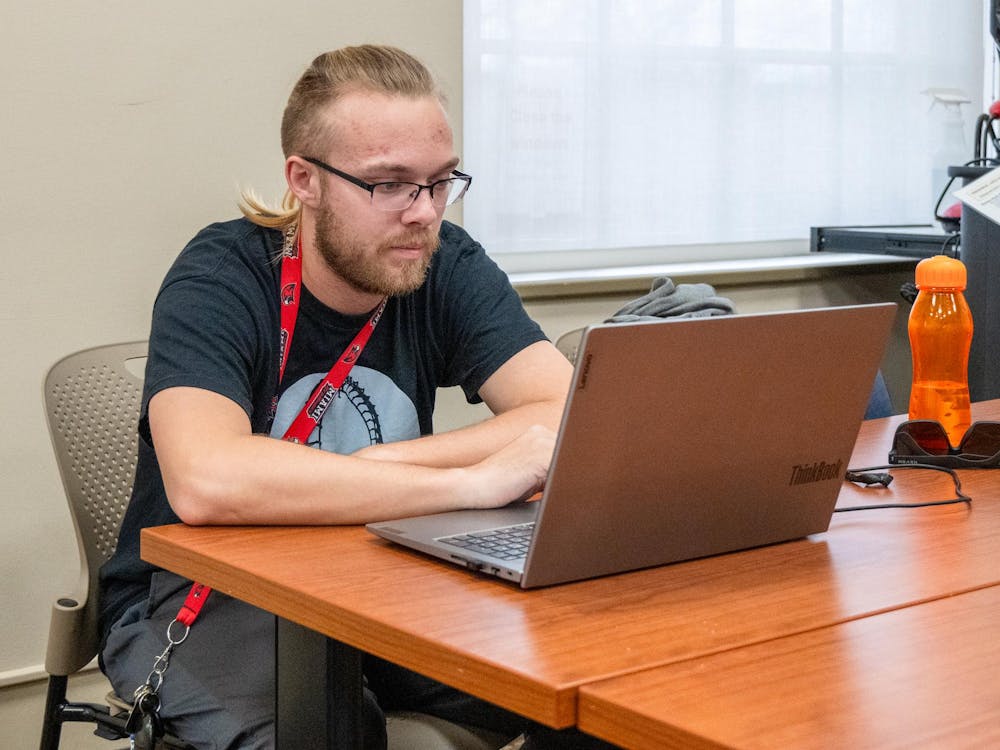Before March 2020, Miami University’s Crisis Call Center was a giant box of phones stored in two suitcases.
Before February 2020, Scott Walter, assistant vice president of Student Life, said he never had to use it.
“It looks like something from Star Wars,” he said of the massive metal emergency initiative.
Walter is one of an expansive group of Miami staff that have been responsible for managing the call center as it became a staple of Miami’s pandemic operations.
Student Life shares the responsibility with Enrollment Management, and Walter estimated the number of staff to fall in the 60s or 70s. Miami IT also developed an email method of service when campus cleared out in March 2020.
The call center is separate from the one run by Student Health Services (SHS), yet both are overrun with callers.
SHS takes more than 6,000 calls per week. The final paragraph of the COVID Response Team’s Oct. 21 email reads, “Call Health Services at 513-529-3000. Please be patient as Health Services is experiencing a high call volume.”
Both parties often field calls from students and parents alike about issues outside their focus.
“It used to be called the Crisis Call Center,” Walter said, “and now it really is more of a call center/self-help/getting people directions. Or trying.”
Beth Tonyan, a nurse practitioner with SHS, wrote in an email to The Miami Student that people mostly called to ask about vaccine requirements, MedProctor concerns and surveillance testing. Tonyan said SHS employees worried that those calls were drowning out students looking to make appointments or seek personal medical help.
“Our concerns that sick students and employees were on a lengthy hold and could not make an appointment in time grew higher,” Tonyan wrote.
Walter said that beyond getting calls about extraneous topics, some people call to complain about mask mandates, vaccine requirements or other COVID-19 rules.
Enjoy what you're reading?
Signup for our newsletter
“In the beginning, half the calls we were taking were, ‘We support you.’” Walter said. “The other half were, ‘You’re a horrible human being.’”
He said he understood those kinds of calls, in that they came from places of uncertainty and isolation.
Those kinds of calls have decreased this year, but callers can still get frustrated when they can’t find an immediate answer to their question. Walter hopes people know that it’s not for lack of trying.
“That's where I go back to at the end of the day,” Walter said. “What I want them to know is that everybody, no matter what the question is, wants to try to help them get the answer.”
Tonyan shared a similar stance, wishing SHS had greater call-taking capabilities.
“As much as we want to answer everyone’s question, there are often times that Health Services is not able to,” she wrote. “When we are unable to, we often feel defeated. In the end, we are looking out for the best interest in our students and employees of Miami.”
Carole Johnson, associate director of news and communication, wrote in an email that the employees callers come into contact with have their best interests at heart.
“Our call centers are there to provide that ‘real-person contact’ we all crave when we need help,” Johnson wrote. “They tirelessly go above and beyond to work with a caller because, in the end, we are all striving for the health and safety of everyone.”




